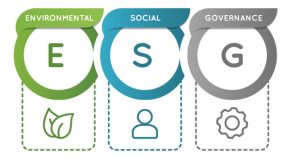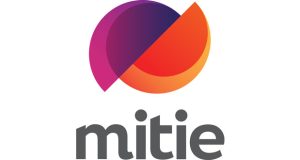A similar number of respondents (28 per cent) expect employee retention to prove challenging, while others are bracing for rising costs and budget squeezes (27%).
Many (26 per cent) also believe that their organisation may struggle to satisfy employees’ remote or hybrid working expectations going forward.
Using AI, pay rise requests, and staying compliant (three distinctly different organisational ‘challenges’) were tied for fifth place in Ciphr’s poll. One in four (25 per cent) HR professionals anticipate difficulties with ensuring good AI practices, meeting salary expectations in a continuing cost-of-living crisis (25 per cent), and getting ready for the sweeping reforms of the Employment Rights Bill (25 per cent).
Other big concerns included providing employees with: regular training and development (23 per cent), a good work-life balance (23 per cent), an inclusive workplace (22 per cent), and new benefits and rewards (22 per cent).
Commenting on the survey findings, Claire Hawes, Chief People and Operations officer at Ciphr, said: “It’s interesting to see how close the top five results were, with just one percentage point difference between each one. Although recruitment and retention continue to make headlines, Ciphr’s research highlights that leaders have many other, equally concerning, challenges to navigate – including AI, the impact of tighter budgets, complex regulatory changes, salary inflation, and continuing RTO/WFH demands. With such a range of challenges, it’s not always clear where to focus your efforts.
“Yes, there’s the challenge of attracting the right talent. But that’s only ever half the battle – keeping people engaged, supporting them and enabling them to grow in their roles, while meeting their pay expectations, is often another challenge again.
“Employers must prioritise creating a compelling employee value proposition (EVP), which covers every aspect of the employee experience. Be led by your data – use feedback from existing employees, of all ages, and recent leavers to understand what needs to improve. Maybe it’s your benefits, maybe it’s clearer career pathways or maybe it’s more transparent communications. Make the changes you can and measure the impact.
“Operational resilience is contingent on how well organisations can balance rising costs with strategic investment in their people. Because the firms that put their people first will, I believe, be best placed to adapt and succeed in 2026.”
Ciphr’s research also revealed what HR teams think bosses should prioritise when it comes to their workers. Especially given the prevailing recruitment and retention challenges that many face. Respondents were asked to consider all employers generally, when sharing their views.
The top 10 priorities for employers when it comes to their workers are as follows:
- Providing a good range of employee benefits (46 per cent of surveyed HR professionals)
- Ensuring a positive, respectful and healthy work environment / culture (45 per cent)
- Providing flexible working / a good work-life balance for employees (45 per cent)
- Paying a good / fair average wage (42 per cent)
- Providing regular employee training, upskilling opportunities, and career advancement (42 per cent)
- Ensuring all employees are treated fairly and equally, with no favouritism (41 per cent)
- Protecting employees’ health and safety at work (40 per cent)
- Providing job security to employees (40 per cent)
- Supporting employees’ mental health and wellbeing at work (39 per cent)
- Providing a good employee experience (39 per cent)
Phil Curtis, MD of Avantus Employee Benefits (part of the Ciphr Group), said these findings aren’t unexpected: “Employers who embrace flexible benefits – giving people greater autonomy to choose the benefits they genuinely want – have seen staff retention rates improve. So, it’s no surprise that having a good range of employee benefits tops the list of priorities for UK employers looking to support their employees’ physical, mental and financial wellbeing.
“A scattergun approach to reward strategy simply doesn’t cut it anymore. Experience tells us that job seekers have become progressively more discerning, especially since the pandemic. They look beyond the headline salary when weighing up employment opportunities and they want to feel fairly rewarded for the value they bring to an organisation. Personalised benefits is an essential part of that.”
The way we work has changed – yet, many organisations are still relying on rigid, one-size-fits-all tools to manage desks and meeting rooms, according to a new study from workplace management solutions provider, Matrix Booking.
Spreadsheets, calendars, and generic booking software may have worked once, but they’re struggling to keep pace with today’s flexible, hybrid workforce. The result? Wasted time, frustrated employees, and expensive underutilised space.
Matrix Booking’s new study, ‘One-size-fits-all booking systems don’t work for today’s workforce’, explores why current systems are falling short – and how organisations can reimagine workspace management to boost efficiency, employee experience, and cost savings.
To download your FREE copy click here.





